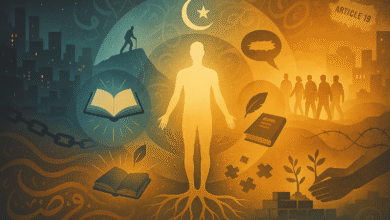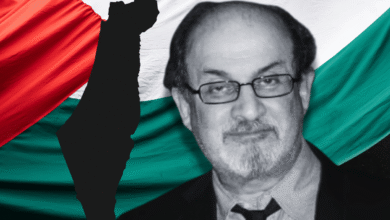Research in Social Sciences-Intellectual Challenge for Alternate Perspective

Any research in the social or natural sciences begins with the fundamental question of what really exists in the world, because one’s theory of reality, the ontological position, impacts upon and ultimately determines one’s world view. There are different schools of thought that theorize the question of reality in their own particular frameworks and, interestingly enough, choosing any theorization would lead the research to a particular direction. The contemporary research in social sciences generally follows one of the many western theorizations, which were evolved and developed in a certain socio-political, cultural and civilizational environment. The question arises whether the western philosophies and methodologies of research are the only credible frameworks to answer the question of reality and needed to be employed by all the researchers belonging to any other ideological or philosophical school, or there are alternate theorizations to them that can be explored. This thought provoking question certainly poses an intellectual challenge to all those who may not want to subscribe to any of the contemporary theories of reality.
Muslim scholars and scientists claim that Islamic traditions present different ontological positions and epistemological practices from Western ones and that a rich discourse regarding the theories of research has guided the development of knowledge and science in the Muslim World for centuries. Whether the Islamic ontology and epistemology are applicable in the modern research practices, and more importantly, whether they present any alternate perspective to develop theories of research in social sciences are important dimensions to explore.
The holy Quran says that Allah the Almighty taught names of things to the first man created by him, meaning that He taught knowledge, concepts and realities of things in all their physical and conceptual dimensions. Along with this knowledge, human beings were endowed with discretion, freedom to choose and they were given Hidayah (guidance), as the Quran says, “when guidance comes to you from Me, whoever follows My guidance – there will be no fear concerning them, nor will they grieve.” (Al-Baqarah 2:38). So the journey of man on the earth does not begin with ignorance, darkness or waywardness. He was given three important things: 1) intellect—the capacity to think, to examine, and to reason—2) knowledge of the physical realm, and 3) higher form of knowledge—Hidayah—which in the ontological terms would mean concept of reality.
The first revelation to the prophet of Islam, Muhammad (peace be upon him – PBUH) consisted of five very important verses: “Read (Iqra) in the name of your Lord who created (Khalaq). Created man from a clot of blood (Alaq). Read and your Lord is the most Generous. Who taught by the pen (Qalam). Taught man which he knew not.” (Al-Alaq, 96:1-5). Iqra here is referred to the dimension of knowledge of the physical world; Alaq refers to the biological realm; Iqra is repeated along with the mention of the graciousness of the creator, referring to the centrality of God in these realms; then Qalam symbolizes technology, communication, human interaction, the capacity to invent new instruments; and the fifth verse signifies the importance of God in the pursuit of knowledge verifying that man is ignorant and God teaches him all.
These first five verses provide us with a lucid paradigm: centrality of God and the recognition of the Creator; the physical world; the biological world; and the technologies. God brings them into existence and they do not exist on their own. Another important element of Islamic paradigm is Istikhlaaf (vicegerent), meaning human beings are created for a purpose, with a mission and a responsibility to harness the sources of this world for the establishment of justice, equity, differentiation in right and wrong, and halal (permissible) and haram (forbidden). The noteworthy point here is that the Quran gives a holistic, integrated, God centered and Hidayah driven paradigm which does not compartmentalize these different components of the reality. The dimensions of reality have been with the human beings since the first man set his foot on the earth. The holy Quran invites its readers to look upon the animals, the mountains, the earth, and everything all around them, to reflect upon them, to relate them with their own existence in this world and, last but not least, to respond intellectually to the realities.
It would also be pertinent to point out here that while the empirical methodologies may claim to have been a post-Enlightenment phenomenon, the historical reality is that they remained an integral part of human life since the time it started. In Islam, with the idea of facing towards Bitullah (Ka’aba), geography became an indispensable instrument to find out the direction. An empirical methodology, experiment, observation, verification and confirmation on the basis of results became an integral part of Muslim methodology. That is why when William Draper presented his study of the clash between science and religion in his book “History of Conflict between Science and Religion”, he says that there are no such conflicts in Muslim era. Similarly, Robert Briffault says in “The Making of Humanity” that inductive method has been founded by Muslims and adopted in the West from them. Sadly, the major paradigms that Islam integrates and presents holistically, namely, divine source as the foundation, intuitive source as human intellect, and empirical methodology as an essential instrument, are seen in isolation in the modern practice of research, each is assumed to be self sufficient; whereas each one of them complements and supports the other.
It needs to be noted that the Islamic paradigm and the secular paradigm of the West are two distinct frameworks, but the superiority of Islamic paradigm lies in its all-inclusiveness. It is the integrated, organic approach which can benefit from the achievements of humanity even in the secular paradigm, although secular paradigm has failed to deliver because of its limited, selective and reductionist approach. The Muslims can make immense contributions with their ontological and epistemological framework through innovation, creativity and independent thinking, which are necessary elements to regain the intellectual leadership.





